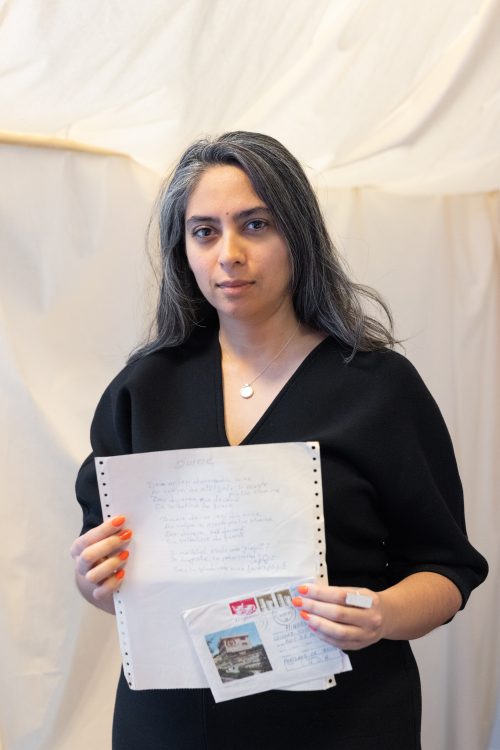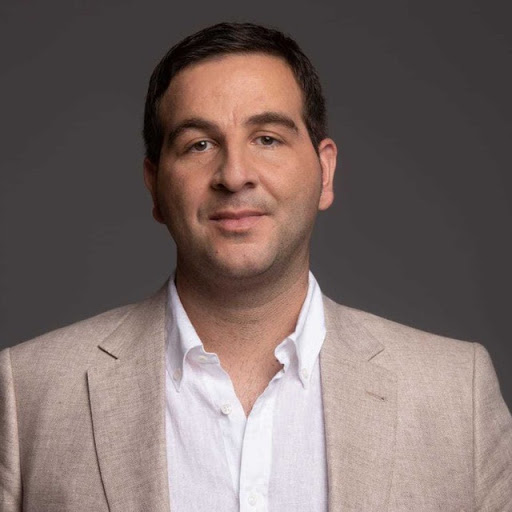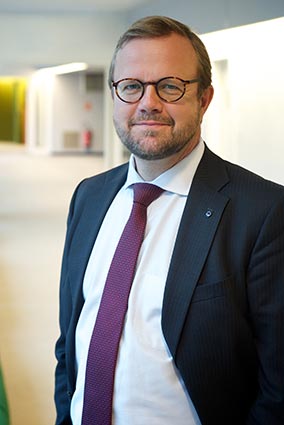ERIAC Welcomes New Pakiv Board Members
In May 2025, in accordance with the ERIAC statutory regulations and following a complex process of internal elections and appointments, the new members of the Pakiv Board have begun their mandates.
The Barvalipe Academy of the European Roma Institute for Arts and Culture (ERIAC) has appointed two new members to the Pakiv Board following an internal election:
-
- Dr. Ismael Cortés-Gómez was re-elected for a second and final three-year term. His previous mandate expired on 10 February 2025.
- Dr. Ioanida Costache was elected for her first term, succeeding Gilda Horvath, who concluded her two-term limit on 20 February 2025. Costache received a majority of votes and began her service on 8 March 2025.
Mr. Mensur Haliti also succeeded Željko Jovanović as the Roma Foundation for Europe representative, following the expiration of his mandate.
Ms. Dijana Jovanović replaced Sead Kazanxhiu as the representative of the Alliance for the European Roma Institute for Arts and Culture.
Mr. Bjorn Berge remained the representative of the Council of Europe in the ERIAC Board.
During the first meeting of the ERIAC Board, the members elected its Chair and Deputy Chair:
Mr. Mensur Haliti was elected Chair of the Board.
Ms. Dijana Pavlović was elected Deputy Chair.
The ERIAC community welcomes the new members of the Pakiv Board and looks forward to joint work in fulfilling ERIAC’s mission.
Pakiv Board
The Pakiv Board is the highest organ of ERIAC. The Board oversees the work of ERIAC, safeguards its values and approves the financial and activity plans.
The members of the Pakiv Board are nominated by ERIAC’s founders: the Secretary General of the Council of Europe (one member), the Open Society Institute (one member) and the Alliance pour l’Institut Rom Européenne pour les Arts et la Culture (one member). Further two members have been nominated by the Barvalipe Academy on their first meeting.
Members of the Pakiv Board

Mensur Haliti
Chair of the Board
Mr. Mensur Haliti is Vice President for Roma for Democracy and Network Development at the Roma Foundation for Europe, and President of the Roma for Democracy Foundations. He holds an Executive Master of Public Administration from the Hertie School of Governance, specializing in governing regimes and corruption control, and has completed executive programs in governance, systems thinking, and scenario planning at Harvard, MIT, and Oxford. Over two decades, he has worked across institutions, movements, and political spaces—helping shape thousands of Roma political voices and building some of the most credible and impactful Roma-led movements and institutions in Europe. As part of his doctoral research, he is developing the Roma Political Sovereignty Doctrine (RPS)—a constitutional framework that reconstructs over two millennia of Roma governance through mnemonic law, ritual jurisdiction, and non-territorial authority. Rather than seeking inclusion within exhausted liberal paradigms, Haliti positions Roma epistemology as a foundation for post-statist governance. His writing contributes to a new constitutional canon that positions Roma political thought as a sovereign tradition—one that informs the reconstruction of governance, affirms the legitimacy of Roma self-rule, and participates in the co-design of future political orders.

Dijana Pavlović
Deputy Chair of the Board
Ms. Dijana Pavlović is an Italian-Serbian actress, activist, and politician. She graduated from the Faculty of Dramatic Arts at the University of Belgrade, took part in international theatre festivals across the former Yugoslavia, Romania, and Bulgaria.
Over more than two decades, she has promoted Roma culture and literature, acting as a cultural mediator in schools and campaigning on language rights and against forced evictions in Italy. Pavlović was nominated to Milan’s City Council in 2006 on the United list alongside Dario Fo and ran for the Italian Parliament in 2008 with La Sinistra l’Arcobaleno, though she was not elected.
An accomplished performer, she employs theatre and poetry to reshape public perceptions of her community and advocate for Roma rights across Europe. Currently, Pavlović serves as an ERIAC Board Member and President of the Kethane Movement—the transnational Roma and Sinti network—and as spokesperson for the Consulta Rom e Sinti di Milano; she has been based in Milan since 1999.

Dr. Ioanida Costache
Member of the Board
Dr. Ioanida Costache is a Romani violinist, audio-visual artist, and ethnomusicologist. She is an assistant professor of ethnomusicology and by courtesy, Anthropology at Stanford University, where she also serves as a Faculty Affiliate at the Center for Comparative Studies in Race and Ethnicity. Her scholarly work brings together thinking on race, coloniality, performance, and affect to investigate the inscription of Romani history and subjectivity into Romani sonic and artistic expression, examining how sound structures the political and social belonging of Romani peoples in ways that both reify and challenge processes of identity formation and racialization. Costache’s writing has been published in EuropeNow, RevistaARTA, Critical Romani Studies, and European History Quarterly. Her research has been supported by two Fulbright Grants, the Council of European Studies and visiting and postdoctoral fellowships at the University of Pennsylvania, the U.S. Holocaust Memorial Museum, and the USC Shoah Foundation. Her creative work as a violinist and audio-visual artist has been exhibited in San Francisco, CA, New York City, Bucharest, Romania and at the 2022 Roma Exhibition Collateral Event at the 59th la Biennale di Venezia.

Dr. Ismael Cortés-Gómez
Member of the Board
Dr. Ismael Cortés-Gómez is a political philosopher who holds a double academic position as a part-time lecturer at the Unesco Chair of Philosophy (Universitat Jaume I de Castelló) and as a visiting researcher at the Institute DEMOS Paz (Universidad Autónoma de Madrid). He holds a PhD in International Studies of Peace, Conflicts and Development by the UNESCO Chair of Philosophy for Peace at Universitat Jaume I. He has been a researcher at the University of Nottingham, the International University of Andalusia, and the Carlos III University. He has been an expert consultant in the OSCE – ODHIR project “Turning words into action. Combating anti-Semitism and other forms of intolerance (2015-2018)”. He has worked as a policy analyst for think tanks such as the Center for European Policy Studies and the Open Society European Policy Institute. He was a post-doctoral fellow of the Roma Studies Program at Central European University. He coordinated the book Dimensions of Antigypsyism in Europe. Currently, he serves as an MP in the Spanish Parliament. Dr. Cortes also authored several articles in scientific journals and international newspapers. His research interest focuses on the interrelation among law-culture-politics, by analyzing how ideologies constitute institutional norms, policy frames, and action programs.
Dr. Cortés-Gómez has worked as a policy analyst for Open Society Foundations from 2016 to 2018, both with the Budapest and the Brussels office; he also collaborates as an associate researcher with the Brussels-based think tank Centre for European Policy Studies. He has published numerous papers in peer-reviewed journals and op-eds with newspapers such as Huffington Post, Le Monde Diplomatique, Euractiv, and El País. His work is deeply engaged with the criticism of new forms of racism and ethnonationalism in the European Union.

Bjørn Berge
Member of the Board
Mr. Bjørn Berge serves as the Council of Europe’s Deputy Secretary General since 1 March 2021.As the Deputy Secretary General he is involved in a number of key areas of the work of the Organisation, including advising and overseeing the implementation of the Secretary General’s reform agenda, in line with the decisions and priorities of the Committee of Ministers. His priorities include shaping the Programme and Budget, while ensuring that the Organisation’s activities have maximum impact in advancing democracy, human rights and the rule of law. He also oversees the Council of Europe’s staff policy, as well as other key areas of the work of the Organisation. Before taking up his post, Mr. Berge was for a period of four years Director General and Secretary to the Committee of Ministers of the Council of Europe. Between 2009-2017, he served as Director of the Private Office of the Secretary General and the Deputy Secretary General, helping to prepare, co-ordinate and implement a number of comprehensive reforms of the Organisation. Mr. Berge has over thirty years of international professional experience. As a former Norwegian diplomat, he served as International Adviser to the Prime Minister and as Deputy Director of the Foreign Minister’s Cabinet responsible for all matters related to Parliament. He also served as speechwriter to three Norwegian Foreign Ministers. Mr. Berge has published several books on a range of issues relating to speech writing and speeches, as well as articles on the Council of Europe’s mandate and work. He was a Fulbright Scholar and holds a M.A. in International Relations from the Paul Nitze School of Advanced International Studies (SAIS), Johns Hopkins University, Washington D.C., USA.